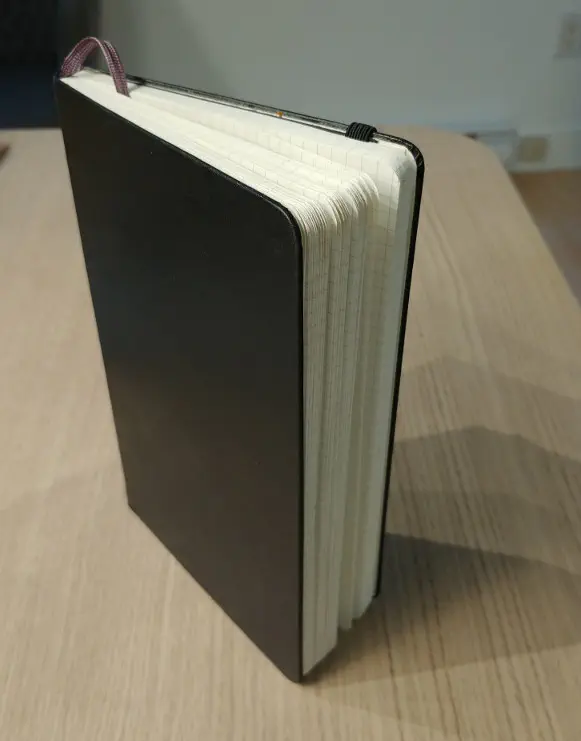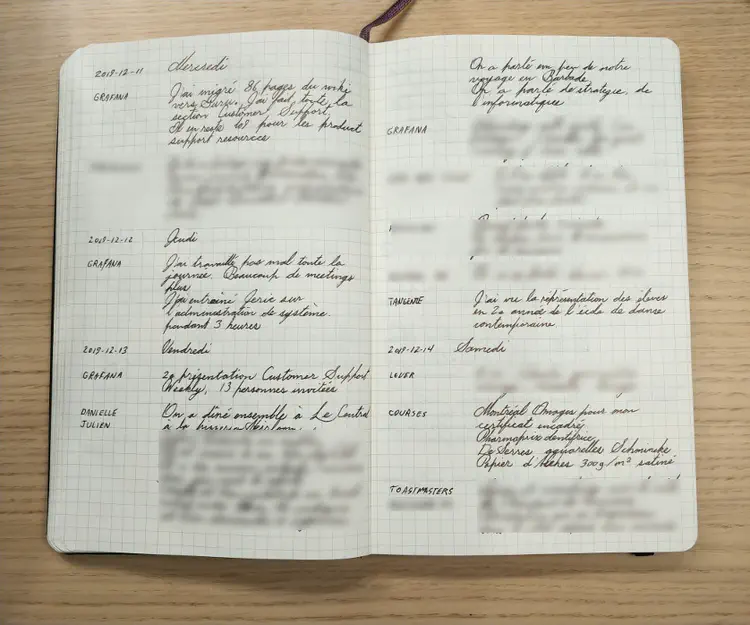Daily Journal
My writing systems
This page is part of a series on journaling.
Introduction
My daily journal is a record of things I did, places I’ve been, and people I’ve interacted with. It’s usually a factual report. I’m particularly interested in my social interactions, which constitute most of the content in this journal.
Benefits
This journal helps me keep track of personal goals and keep bad habits in check. One of my goals is to extend my social network and strengthen my most valuable relationships. I believe this journal greatly helps me. I memorize names better, I understand my social environment better. I get a sense of the influence I have on others.
Memory is not a reliable witness. We know that memories are altered every time they are recalled. A written medium is more than a tool, it’s a service to my future self. It’s an attempt to examine my life objectively, and to protect myself against self-deceptions and omissions. It also protects me from manipulations, lies, and deformations of facts by others, malicious or involuntary.
When travelling, or when going through life changing events, so many things happen in a short time that I cannot possibly retain and recall all the important details. Most of the memories are lost even a few days after the facts. This journal is invaluable because it captures key experiences that I can refer back to months or years later, with places and people’s names, and the chronology of events.
Process
At night, before going to bed, I review the day and every interactions I had. I note the persons names, their story, what was said, what we did, how we felt. Sometimes, I also note people’s other relationships, their preoccupations, their desires.
I also note what I do in my free time. What time I got out of bed, what I do before going to work, how I spent time in the evening, what I accomplished.
Material
I use a Moleskine Square Notebook (Amazon.ca).
With the squares, I can indent paragraphs and leave space on the left for key words. The line height is smaller than the traditional Notebook, which increases the information density.
I write with a fountain pen (or a ball pen when travelling). See also Writing instruments.
Takeaways
- I journal every day, without exception.
- I write a header for each day: “yyyy-mm-dd Day-of-the-week”.
- I write keywords in all caps in the left margin to describe who or what the paragraph is about.
- Keywords help me scan, filter and locate information faster.
- Each social interaction is noted.
- 90% of our subjective environment is other people. By journaling social interactions, 90% of the important information is covered.
- For social interactions, I note:
- What is their story?
- What is their situation?
- What are their other relationships?
- What was said during this interaction?
- How did we feel?
- Other things I note:
- Experiences.
- Observations.
- Habits.
- Daily work achievements.
- Self time activities, accomplishments.
- Trips, itineraries.

